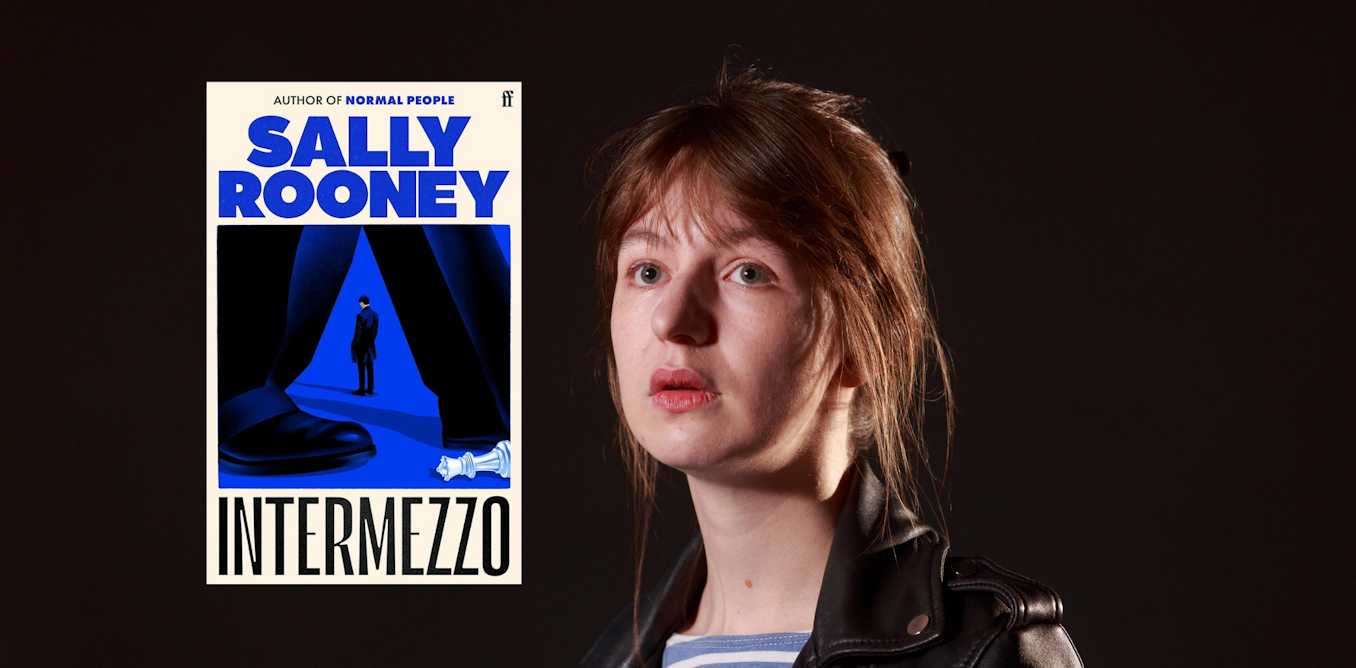Sally Rooney’s new novel, Intermezzo, is her longest and best consideration of “idiotic desire and love” yet

مجلة المذنب نت متابعات عالمية:
On the level of theme, the Irish writer Sally Rooney is firmly in her wheelhouse in her new novel Intermezzo. We find Peter and Ivan Koubek having just lost their father and trying to forge a life through and past this bereavement by way of intimate relationships.
Peter, a barrister in his early 30s, is embroiled in a semi-secret situation-ship with a much younger college student and former sex worker, Naomi. He balances this with his longstanding and largely chaste relationship with a former long-term girlfriend, Sylvia.
Ivan, a decade younger and aeons less suave than his older brother, has meanwhile taken up with Margaret, a 36-year-old woman he meets while playing chess in Leitrim, a county in the north-west of Ireland.
So far, so familiar. Anyone seeking plot-driven fiction without a romantic bent from Rooney should know better by now.
The minor stylistic differences between Intermezzo and her other books reviewers have noted are all moderated by the manifest continuities in Rooney’s authorly concerns.
We read Rooney because she is that unusual writer whose characters raise serious and abiding questions about the particular historical, social and economic moments they inhabit. Her characters manage to do so without ever feeling like anything less than fully developed, psychologically complex individuals.
In Conversations with Friends and Normal People, the faltering of young relationships and first love tested the characters’ ideologies against their behaviours, their politics against their morals. In Beautiful World, emails allowed Alice and Eileen the space to describe what it feels like to live in a moment of historical crisis even as life (in the alternating chapters) carries on unchanged.
This very Rooney-esque tension is, in Intermezzo, parlayed as a struggle between brothers, where Peter castigates various beliefs of Ivan’s and Ivan accuses Peter of privileging principle over conduct.
Ivan thinks that “Peter is the kind of person who goes along the surface of life very smoothly.” This, for the record, is not at all reflected in Peter’s inner monologue, which proceeds via truncated sentence fragments and is peppered by wishes that he was dead.
Life, for Peter, seems to be closing in, and is all the more claustrophobic given the seemingly total clarity with which he remembers “When life was perfect.” He at once envies and feels a great depth of compassion for those whose lives are constantly buffeted by the material forces from which his well-paying job shields him.
Ivan has, at various times, felt himself existing outside of life. He can explain eloquently his opinions on the late capitalist economy (fake), he has a physics degree, a formidable reputation in competitive chess and a history of subscribing to questionable YouTube channels of a distinctly incel flavour. Yet, in Ivan, we see Rooney’s great optimism for people and how they might be redeemed.
Ivan frequently confronts the difficulty of paying rent, of living in a world where a person cannot do something as prosaic as have a dog. But these problems are tempered by a feeling that the world is nevertheless beginning to open up for him. As he muses, it is surely better to face down these “never-ending struggle[s]” with optimism than be worn down by them. When he meets Margaret, he feels increasingly assured that the world does “make room for goodness and decency.”
This newest book is perhaps Rooney’s most mature reflection on how relationships operate as exercises in optimism, both in each other and in the world itself. Intermezzo is remarkable and bracing on the exchange of promises that happens in relationships, on the currency of hope they run on, and mutual, voluntary emotional debts they create. These debts, of course, are not always repaid, and that is part of the point: the stakes of love are high, and we run the risk of defaulting and being defaulted on.
And yet, for Rooney, this risk is always worth taking. It must be, because it is all there is. Rooney’s is a world in which relationships sustain us and in which small daily miracles make life seem more bearable than is proportionate. This might be as simple as the unthinking care enacted by such an everyday chore as “making up [a] packed lunch, Nutella sandwiches, an apple wrapped in kitchen roll” for someone else, or the unrationed totality of love a dog shows its owner after an absence.
As with each of her novels before this, Rooney’s power as a writer is to focus attention on the crazy hope we place in other people’s ability to sustain us and the anxiety we feel about what we could possibly offer in return. And, against all suggestions of departure, this is the main point of continuity across Rooney’s oeuvre.
Rooney appears to share the views of many of her characters. Like Frances in Conversations with Friends who says “[y]ou live through certain things before you understand them. You can’t always take the analytical position”. Like Marianne in Normal People who believes that “people can really change one another”. Like Eileen in Beautiful World who hopes that “the most ordinary thing about human beings is not violence or greed but love and care.” And, like Ivan in Intermezzo, she is an optimist.
Looking for something good? Cut through the noise with a carefully curated selection of the latest releases, live events and exhibitions, straight to your inbox every fortnight, on Fridays. Sign up here.
نشكركم على قراءة المنشور عبر مجلة المذنب نت, المتخصصة في التداول والعملات الرقمية والمشفرة














